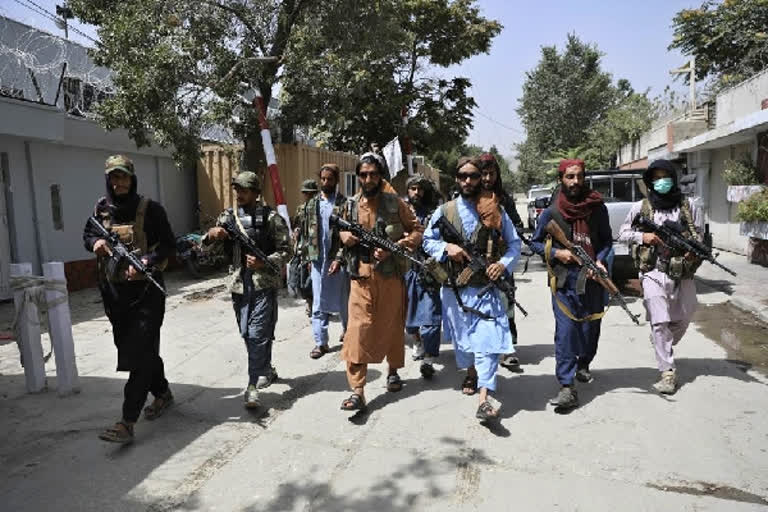Kabul (Afghanistan): Taliban forces destroyed the statue of a Shiite militia leader who fought against them during Afghanistan’s civil war in the 1990s creating fear that the militant organisation might not keep to the promises it has made.
The insurgents’ every action after their sudden ascendance to power is being watched closely.Taliban leaders insist they have changed and won’t impose the same draconian restrictions they did when they last ruled Afghanistan. The Taliban had in their previous rule eliminated women’s rights, carried out public executions and banned television and music.
They also promised not to seek revenge against those who have opposed them.
But many Afghans remain deeply skeptical, and thousands are racing to the airport and borders to flee the country. Many others are hiding inside their homes, fearful after prisons and armories were emptied during the insurgents’ blitz across the country.
On Wednesday, groups of fighters carrying long guns patrolled a well-to-do neighborhood of the capital, Kabul, that is home to many embassies as well as mansions of the Afghan elite. The Taliban have promised to maintain law and order but many Afghans don't trust them.
In a rare, early show of dissent, dozens of people gathered in the eastern city of Jalalabad and raised the Afghan national flag in an anti-Taliban demonstration, according to Salim Ahmad, a local resident. He said the Taliban fired in the air to disperse the crowd. There were no immediate reports of any casualties.
The insurgents have raised their own flag — a white banner with Islamic inscriptions — in the territories they have seized.
As Afghans and the international community look to see if the Taliban will make good on their promises, photos circulated on social media of a destroyed statue dedicated to the memory of a leader from the Hazara community. It depicted Abdul Ali Mazari, a militia leader killed by the Taliban in 1996. Mazari was a champion of Afghanistan’s ethnic Hazara minority, Shiites who were persecuted under the Sunni Taliban’s earlier rule.
Also read:In first-ever presser, Taliban vows cordial relations with all
The statue stood in the central Bamyan province, where the Taliban infamously blew up two massive 1,500-year-old statues of Buddha carved into a mountain in 2001, shortly before the U.S.-led invasion that drove them from power. The Taliban claimed the Buddhas violated Islam’s prohibition on idolatry.
Another Taliban promise being closely watched is their vow to prevent Afghanistan from again being used as a base for planning terrorist attacks. That was enshrined in a 2020 peace deal with the Trump administration that paved the way for the drawdown of American troops, the last of whom are supposed to leave at the end of the month.
When the Taliban were last in power they sheltered Osama bin Laden and al-Qaida while they planned the Sept. 11, 2001, attacks. U.S. officials fear al-Qaida and other groups could reconstitute themselves in Afghanistan now that the Taliban are back in power.
The Taliban have pledged to form an “inclusive, Islamic government” and have been holding talks with former President Hamid Karzai and Abdullah Abdullah, a senior official in the ousted government. Mohammad Yusof Saha, a spokesman for Karzai, said preliminary meetings with Taliban officials would facilitate eventual negotiations with Mullah Abdul Ghani Baradar, the top Taliban political leader.
